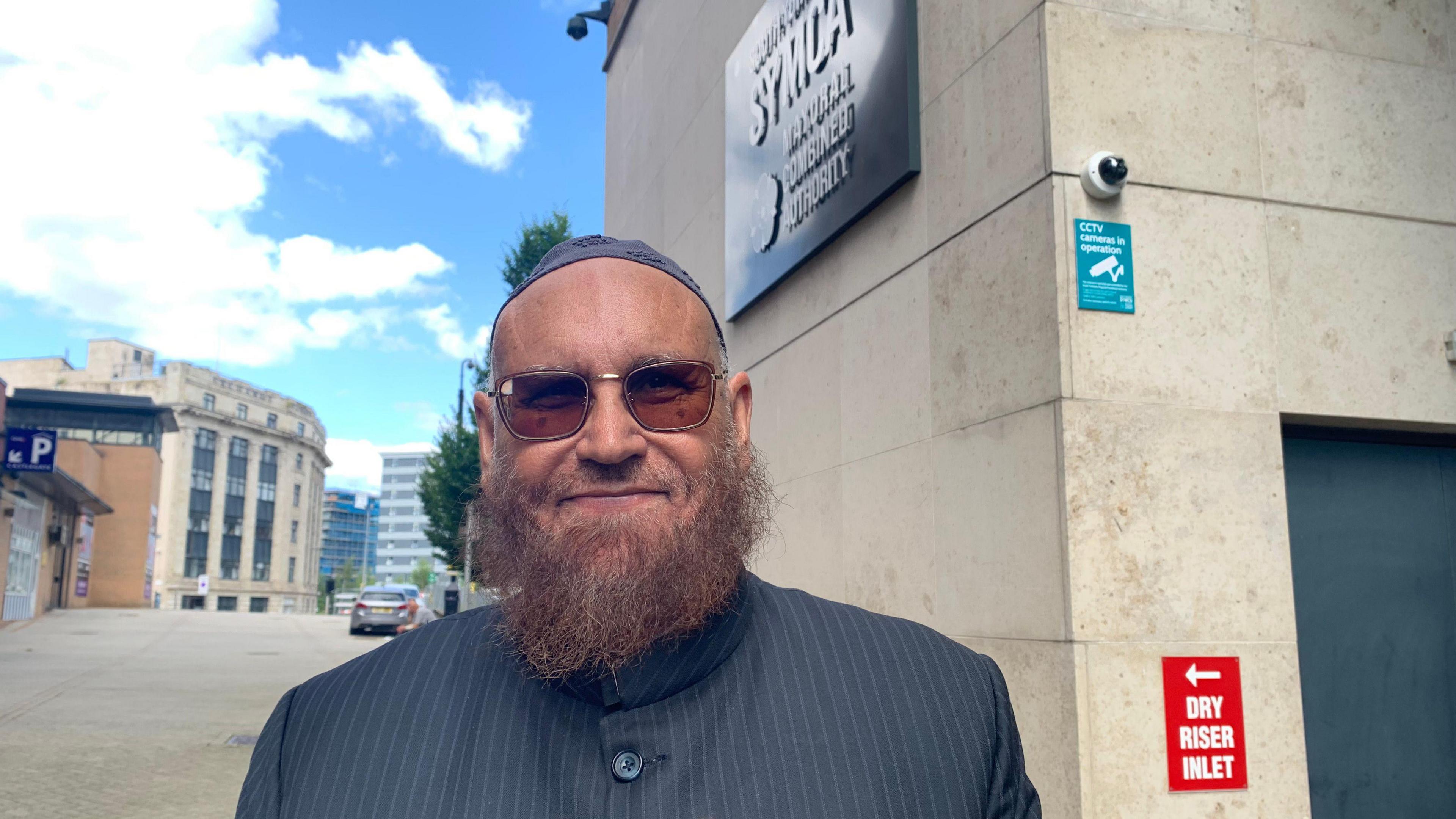Women urged to have their voices heard after riots
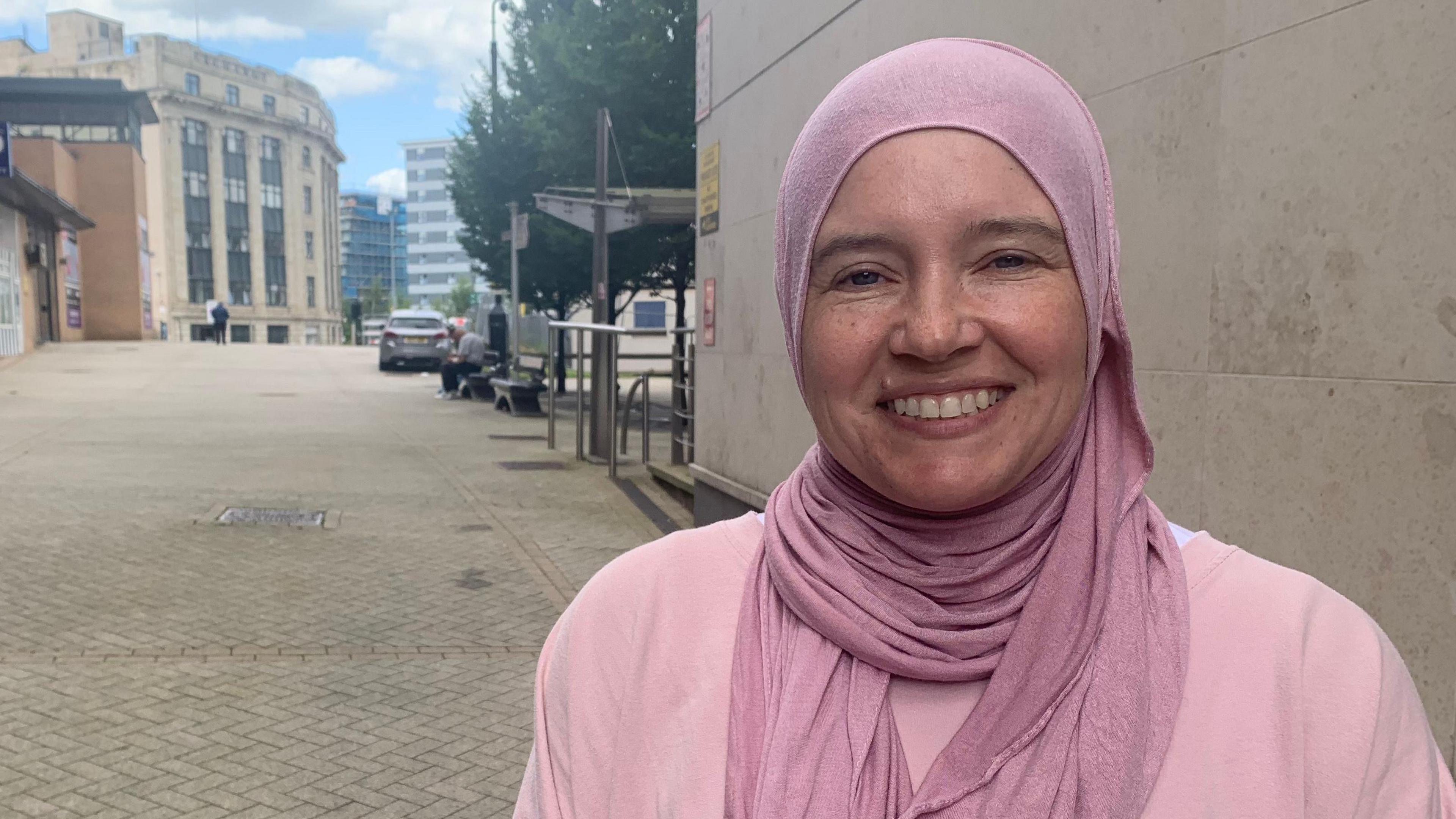
Ameena Blake says the views of women from different communities need to be heard in the light of recent events
- Published
Women in South Yorkshire left feeling vulnerable after recent riots have been encouraged to speak up and tell people how their lives have been affected.
Violent disorder has broken out across the UK, including in South Yorkshire, following the killing of three girls in Southport on 29 July.
Ameena Blake, chaplain with South Yorkshire Police and the University of Sheffield, organised a Unity in the Community event so women could tell local leaders, politicians and police of the impact the riots had on them.
She said: “Women from different communities are feeling very vulnerable. It is women taking children to the mosque in the holidays and who are out in public wearing face coverings."
Ms Blake added: “We need to empower women as their views, especially those in minority groups, are not heard enough.
“They are seen as uneducated and little wallflowers who don’t know what is best for them, but when you look at communities it is women who are leading them.”
Labour councillor Mary Lea, who represents Darnall, which has a large Muslim community, said some people had been left scared to leave their homes by recent events.
“A few people, particularly women, have said they are worried about going out and some families said they were worried about going into town," she explained.
“Somebody told me they had gone into Meadowhall last Sunday when there was the Rotherham riot and there were no Muslim women around, very few Asian shoppers, so maybe that was a sign of how worried people were.”
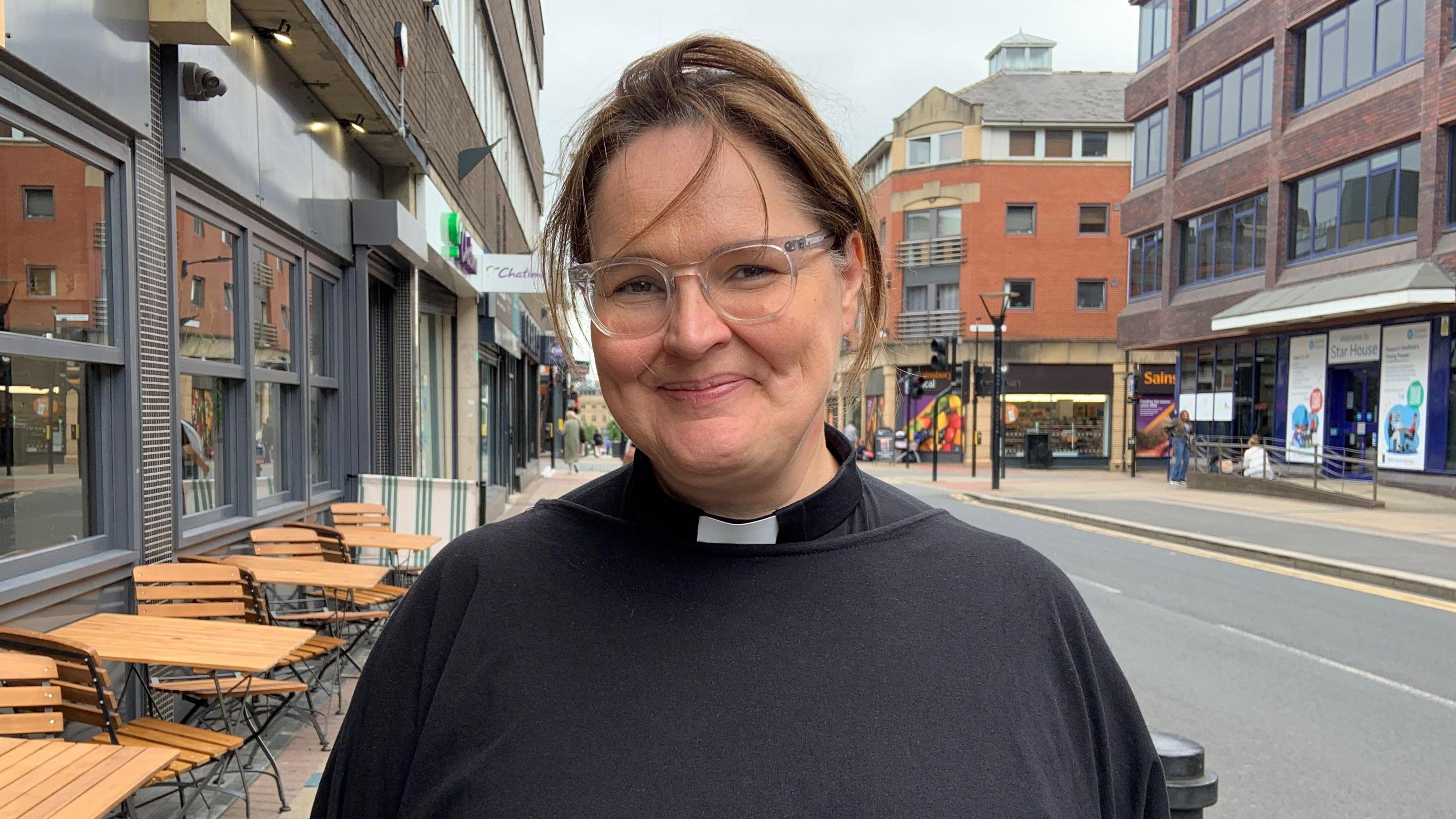
The Very Rev Abigail Thompson says many women are feeling "so afraid"
The Dean of Sheffield Cathedral, the Very Rev Abigail Thompson, who also took part in the Unity in the Community event, said she had been “devastated and horrified” by the riot at the Holiday Inn Express at Manvers, near Rotherham.
“We really want to support people, especially the Muslim community, who are feeling so afraid," she said.
“Women very quickly unite in these kinds of situations and give one another support, but women have been particularly affected."
Dean Thompson added: "There have been horrendous stories of women having their hijabs ripped off and it shocked me to see fellow women being treated so disrespectfully.
“The best way of beating this kind of hatred and fearfulness is to gather together like this and support one another.
“When I saw the scenes in Rotherham, I knew that wasn't representative of most people in this region.
"People are not like that. They are kind and very respectful of other faiths, so we have to get together and remind ourselves of that.”
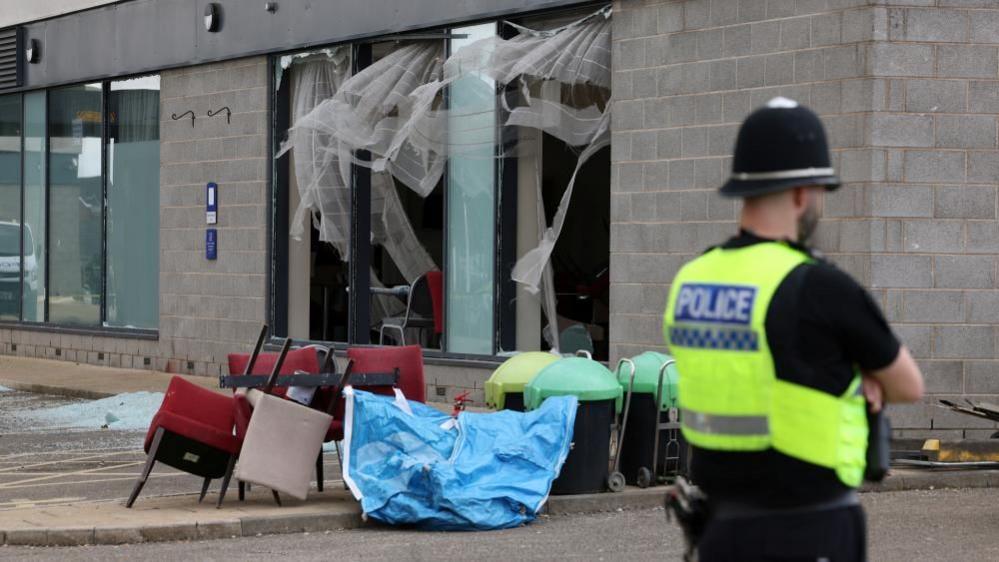
Violence broke out at the weekend at the Holiday Inn Express at Manvers, near Rotherham, leading to more than 50 police officers being injured
Meanwhile, Helen Sims, chief executive of Voluntary Action Sheffield, said community groups had played a key part in passing on the latest information to people in the light of recent events.
She said: “We are there to make sure information is going out and is in the right language for people to understand. But, importantly, our role is working with community leaders to feed intelligence back.
“We listen to what community leaders are seeing and hearing, the levels of anxiety and fear, and making sure that is fed back so we can reassure communities."
Ms Sims said social media in particular was "causing a lot of worry".
"We're trying to give reassurance and say, this may be on social media but there's no evidence to back it up," she said.
“That reassurance is really important because social media is playing a really negative role.
"We need to relay positive information to counter some of that myths and rumours that are being whipped up on social media.”
Listen to highlights from South Yorkshire on BBC Sounds, catch up with the latest episode of Look North or tell us a story you think we should be covering here, external.
Related topics
- Published8 August 2024
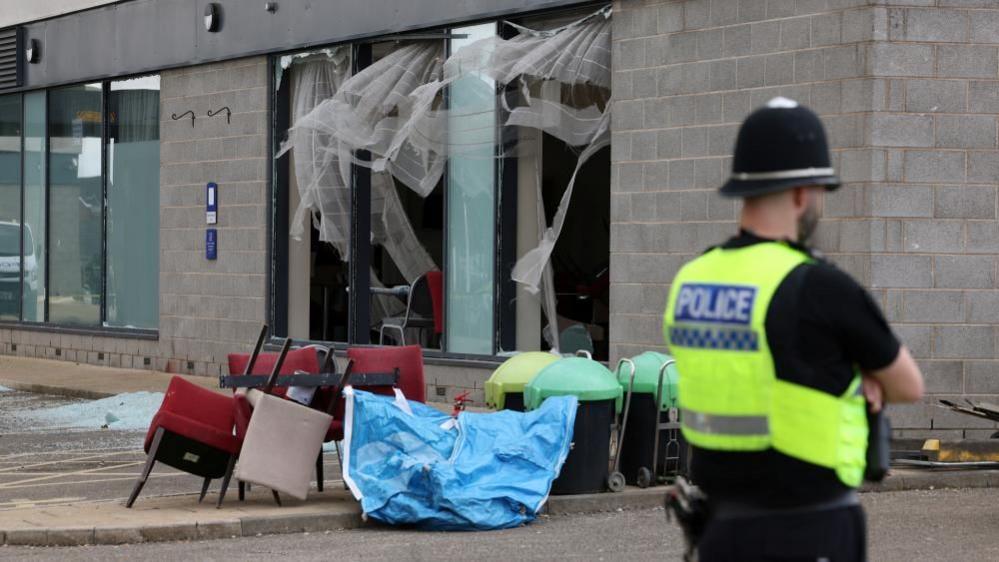
- Published7 August 2024
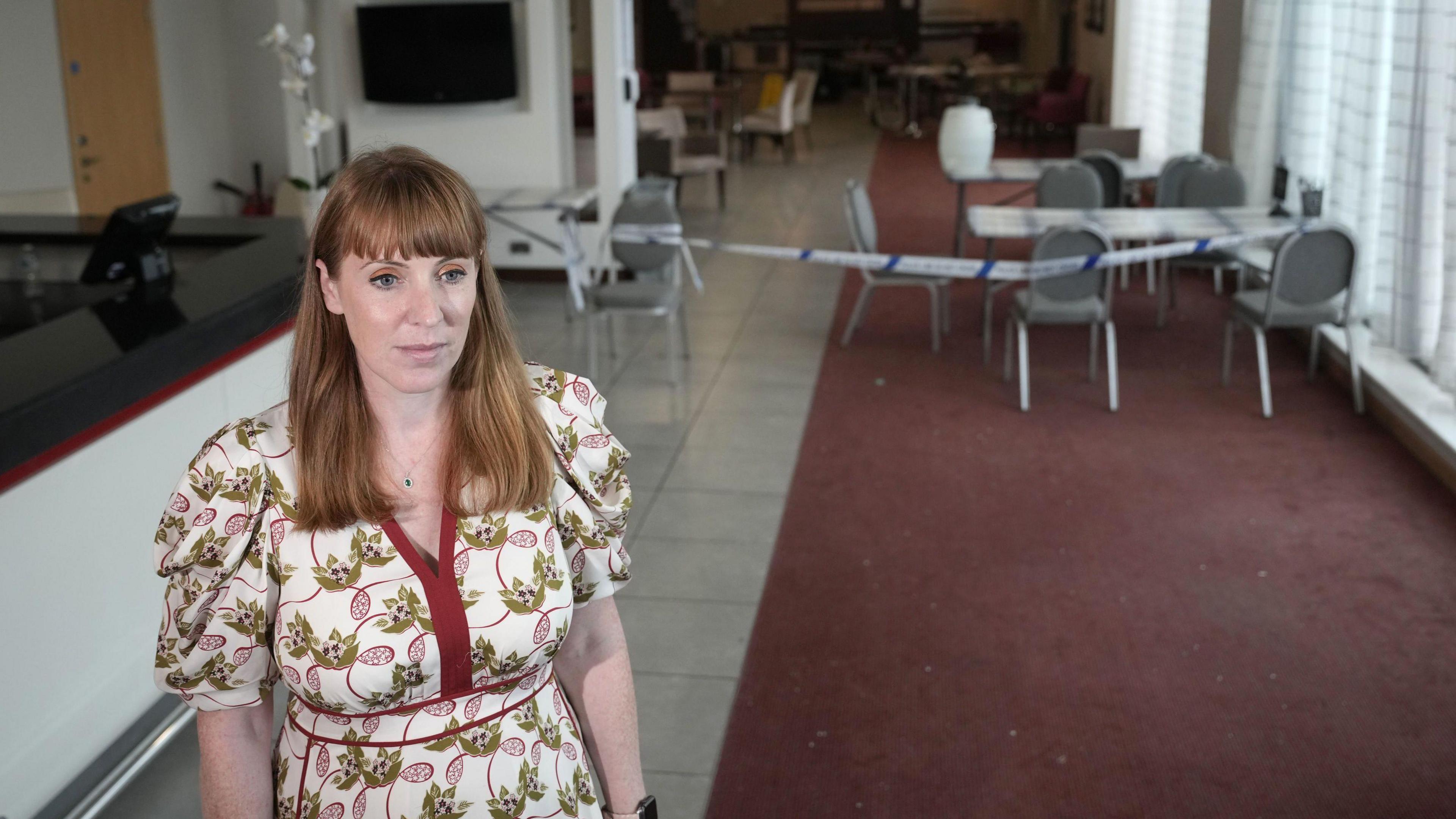
- Published6 August 2024
